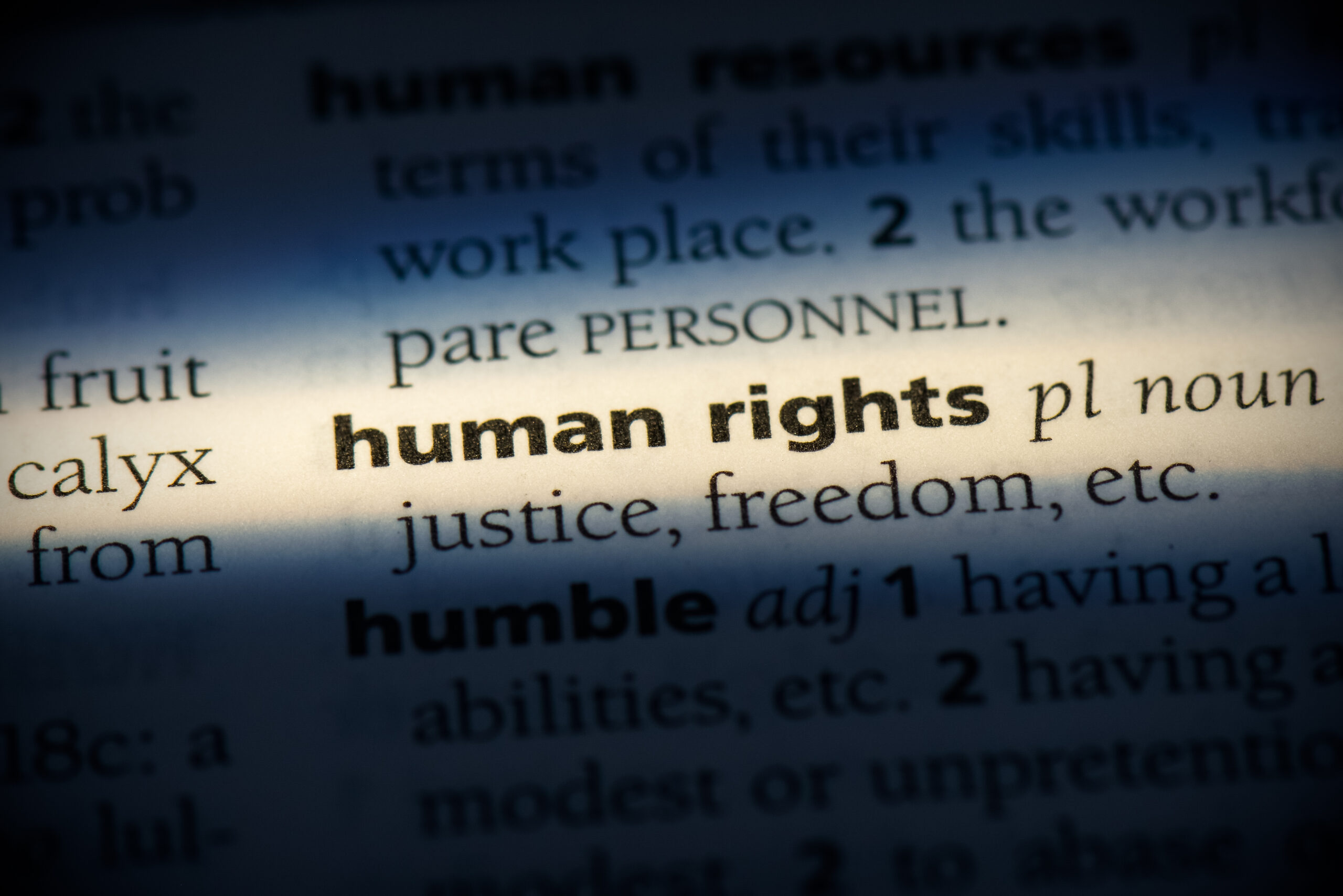
Charitable purposes under IRC Section 501(c)(3) include the the promotion of social welfare by organizations designed to defend human and civil rights secured by law. The IRS Exempt Organizations Technical Guide: TG 3-3 Exempt Purpose, Charitable IRC 501(c)(3) (rev. 3/20/23) provides the following description:
“(1) Treas. Reg. 1.501(c)(3)-1(d)(2)(iii) includes defending human and civil rights secured by law under the term charitable.
(2) Human rights are generally thought of as the most fundamental rights. Human rights are those that individuals enjoy because they are human. No government body, group or person can deprive human rights to an individual. Some of the basic human rights are the right to life, education, fair trial, protection from torture and freedom of expression.
(3) Civil rights, on the other hand, are those rights that one enjoys by virtue of citizenship in a particular nation or state. In America, civil rights have the protection of the U.S. Constitution and the Civil Rights Act of 1964. Civil rights protect citizens from discrimination and grant certain freedoms, like free speech, due process, equal protection, the right against self- incrimination, and so forth. Civil rights can be thought of as the agreement between the nation, the state, and the individual citizens that they govern. It’s worth noting that Civil and Human rights are often one in the same. They are not mutually exclusive.
(4) The Bill of Rights consists of the first ten amendments of the United States Constitution. Some of the rights granted include freedom of religion, freedom of speech, freedom of the press, the right to peacefully assemble, the right to a jury trial, and the right to due process of law. These are our civil liberties. Civil liberties are the freedom of a citizen to exercise customary rights, such as freedom of speech or assembly, without unwarranted or arbitrary interference by the government.
(5) Section 1 of the fourteenth amendment to the Constitution expressly states, “No State shall make or enforce any law which shall abridge the privileges or immunities of citizens of the United States; nor shall any State deprive any person of life, liberty, or property, without due process of law; nor deny to any person within its jurisdiction the equal protection of the laws.”
(6) The Civil Rights Act of 1964 outlawed discrimination based on race, color, religion, sex, or national origin. These rights included the:
a. Right to vote.
b. Right to confer jurisdiction upon the district courts of the United States to provide injunctive relief against discrimination in public accommodations.
c. Right to authorize the Attorney General to institute suits to protect constitutional rights in public facilities and public education.
d. Right to extend the Commission on Civil Rights.
e. Right to prevent discrimination in federally assisted programs.
The Act also establishes a Commission on Equal Employment Opportunity.
(7) Rev. Rul. 75-285, 1975-2 C.B. 203: A nonprofit organization formed to eliminate discrimination against members of minorities seeking employment in the construction trades by recruiting, educating, and counseling workers, providing technical assistance to attorneys involved in suits to enforce workers’ rights, and acting as court-appointed monitor after successful suits, is organized and operated exclusively for charitable and educational purposes is exempt under Section 501(c)(3).
(8) Rev. Rul. 72-228,1972-1 C.B. 148: An organization formed to promote equal rights for women by investigating instances of discrimination in employment and other economic opportunities and to aid women in recognizing and dealing with discrimination qualifies for exemption under Section 501(c)(3).
…
[Citing GCM 38468] …
a. “The term ‘human and civil rights secured by law’ should not be construed by the Service so as to include only those rights which are clearly guaranteed under the fifth, thirteenth, and fourteenth amendments. We [authors] believe that the scope of the term ‘human and civil rights secured by law’ should be construed quite broadly to include such rights not only by the Constitution of the United States or of a state, but also by federal or state statutes.
b. However, any organization whose purpose is to defend these rights must also comply with all of the other rules governing charitable entities. This includes Treas. Reg. 1.501(c)(3)-1(d)(1)(ii) that the organization must serve a public rather than a private purpose to qualify as a charitable organization under Section 501(c)(3).””
Supporting Litigation
GCM 38578 provides in pertinent part:
“Rendering financial and legal assistance to litigants may be considered an appropriate means to defend “human and civil rights secured by law “ National Right to Work Legal Defense and Education Foundation, Inc. v. Commissioner.
…
GCM 38468 at page 7 sets forth several criteria to determine whether an organization that supports litigation involving human and civil rights serves a public rather than a private interest. The criteria are as follows:
1. whether the litigation engaged in can reasonably be said to promote human and civil rights secured by law;
2. whether the litigation will have a substantial impact beyond the interests of litigants;
3. whether the selection of cases by the organization for its support is made by a board or committee that is representative of the public and is not controlled by employees, persons who litigate on behalf of the organization, or by any commercial entity;
4. whether the primary source of financial support of the organization is from the persons being represented;
5. whether there is an arrangement whereby a donor may claim, directly or indirectly, a charitable deduction for the cost of litigation that serves the donor’s private benefit.”
Related Charitable Purposes
Charitable purposes also include the promotion of social welfare by organizations that conduct activities to: